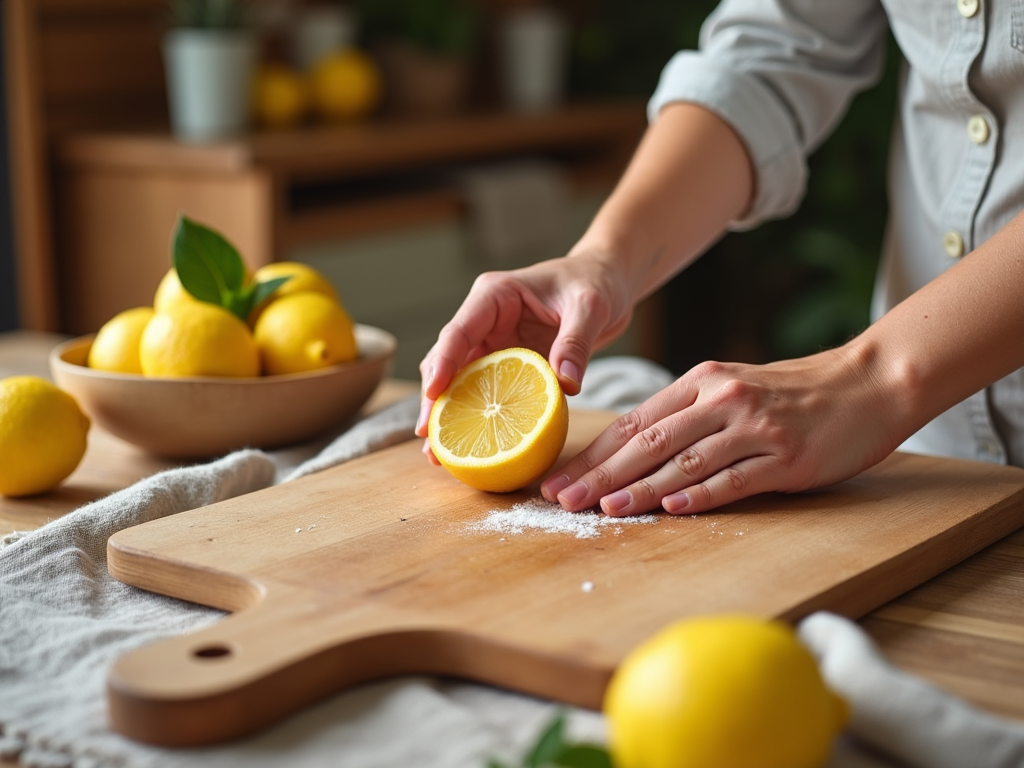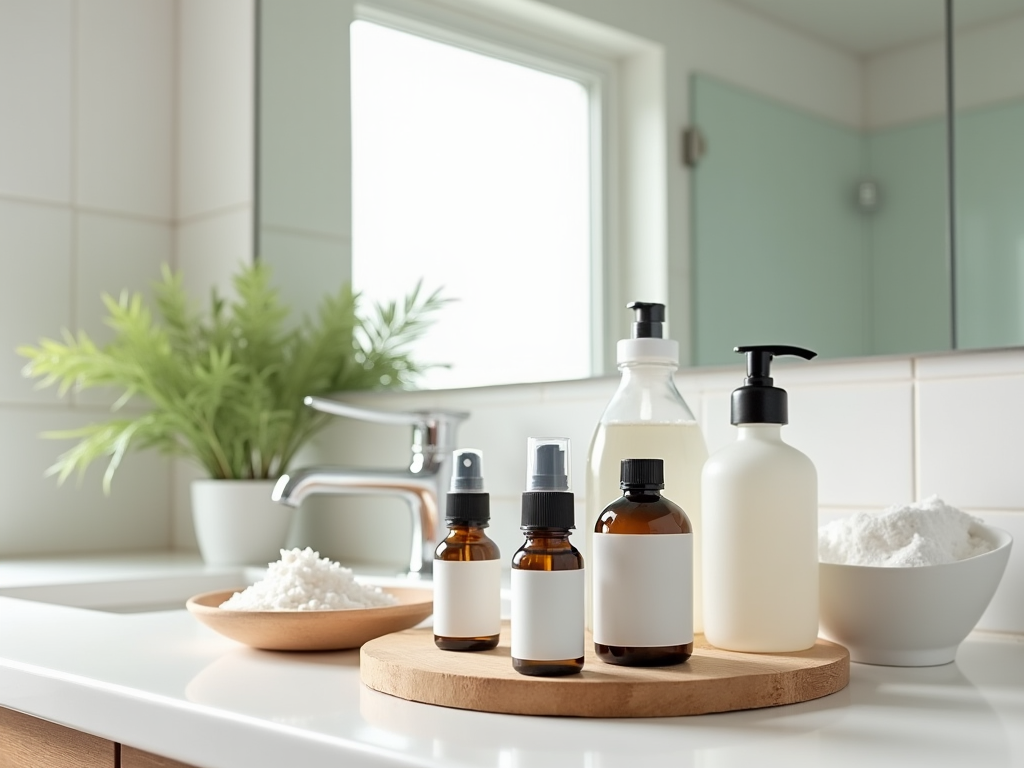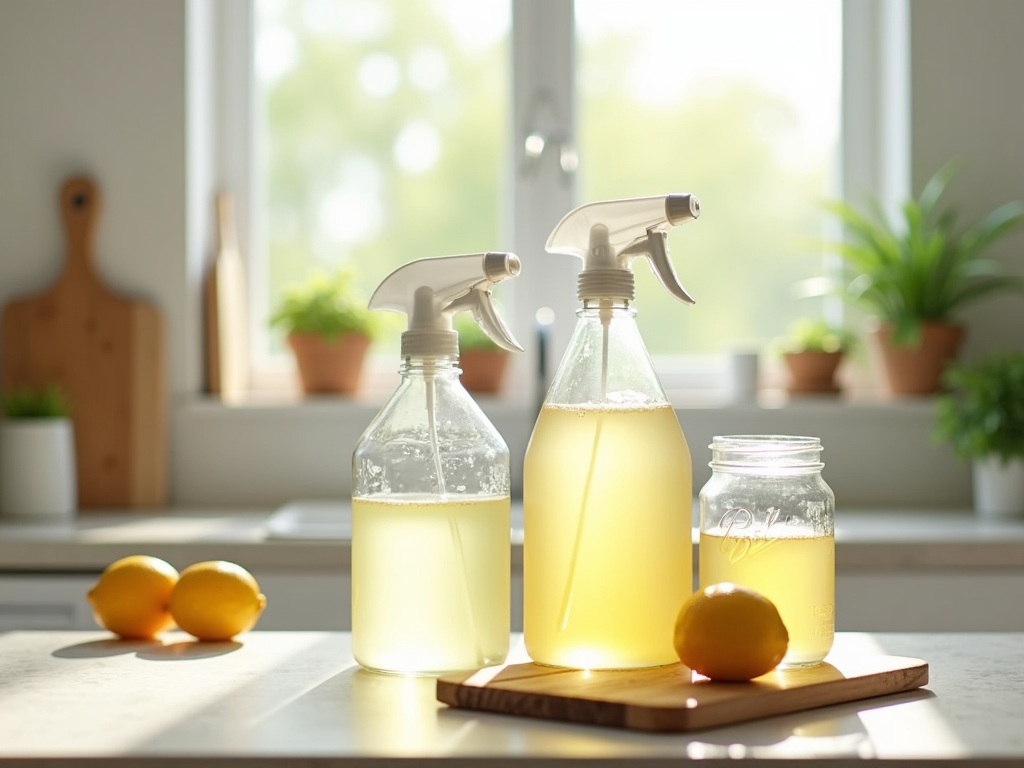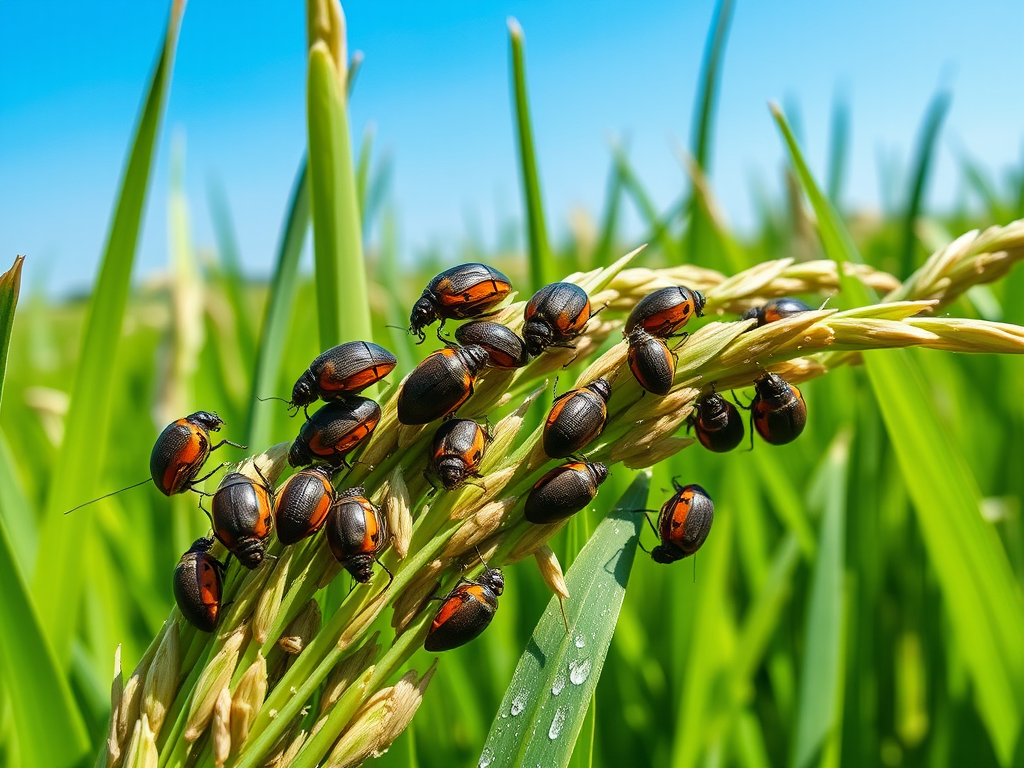In today’s world, many homeowners are seeking eco-friendly and cost-effective cleaning alternatives to replace chemical-laden products. The main question is: how can we effectively clean our homes using natural ingredients? The answer lies in the power of all-natural, homemade cleaning solutions. These simple concoctions can tackle grime, germs, and stains while ensuring a healthier home environment.
1. Baking Soda and Vinegar: The Dynamic Duo

Baking soda and vinegar are perhaps the most well-known power couple in DIY cleaning solutions. When combined, they create a fizzy reaction that helps lift dirt and grime from various surfaces. Use baking soda and vinegar to clean sinks, bathtubs, and even unclog drains. To create a cleaning paste, mix one part baking soda with one part water. Apply this mixture to the area and spray with vinegar. Let it sit for a few minutes before scrubbing away grime with minimal effort.
This combination is not only effective but also incredibly versatile. You can adjust the quantities to suit your cleaning needs while knowing that this duo remains safe, cheap, and ever ready to tackle the toughest cleaning jobs.
2. Lemon Juice: Nature’s Powerful Degreaser

Lemon juice is a highly effective cleaning agent due to its acidic properties, which help break down grease and grime. The natural antibacterial properties of lemon make it perfect for cleaning kitchen surfaces. To harness its power, simply squeeze the juice of a lemon onto a cutting board to remove bacteria or mix it with a water solution to clean glass surfaces streak-free.
For an added bonus, lemon juice leaves behind a refreshing citrus scent that revitalizes your kitchen. Store some extra lemon juice in a spray bottle as a handy cleaner for quick spills and greasy countertops. With its potential to shine, sanitize, and freshen up surfaces, lemon is a must-have in your natural cleaning arsenal.
3. Essential Oils: Scents and Disinfectants
Essential oils not only contribute delightful scents but also add disinfecting power to your homemade cleaning solutions. Tea tree oil, lavender, and eucalyptus oil each bring antibacterial and antifungal properties to the table. Incorporate essential oils into your cleaning routine by adding several drops to water for an all-purpose cleaner or to a cleansing mixture for enhanced cleaning power.
The beauty of essential oils lies in their customizable nature. Tailor your cleaning experience by choosing oils based on fragrance preference or cleaning needs. In addition to cleaning, essential oils will infuse your home with a calming and refreshing aroma that lingers long after the cleaning is done.
4. Castile Soap: Gentle but Mighty
Castile soap is a vegetable-based soap that is gentle on skin but tough on dirt. It can be used in a multitude of ways, from a dish soap replacement to a floor cleaner. For a simple all-purpose cleaner, mix castile soap with warm water and a few drops of essential oil for scent. This can be safely used on countertops, floors, and even on delicate surfaces without worrying about damage.
Its biodegradable properties make castile soap an environmentally friendly option that provides effective cleaning without harsh chemicals. It is especially recommended for homes with children or pets, where sensitivity to traditional cleaners is a concern.
Hydrogen peroxide is a powerful disinfectant that can be used to sanitize surfaces, whiten laundry, and clean bathrooms. To make a bathroom cleaner, mix hydrogen peroxide with baking soda to form a paste that can tackle tough stains in toilets and grout lines. Let it sit for a few minutes before scrubbing away for effective stain removal.
Hydrogen peroxide is also excellent for whitening dull fabrics in the laundry when added to the washing machine. Just be mindful to test a small, hidden area first to ensure fabric safety. With these applications, hydrogen peroxide showcases its versatility as both a potent cleaner and a natural whitener.
Conclusion
Switching to all-natural, homemade cleaning solutions not only benefits the environment but can also lead to a healthier home atmosphere free of harsh chemicals. From the iconic pairing of baking soda and vinegar to the potent effects of hydrogen peroxide, there are solutions for every cleaning task. Embrace the simplicity and power of these homemade concoctions to scrub every inch of your home, ensuring safety, affordability, and peace of mind.
Frequently Asked Questions
- Can I use essential oils on wooden surfaces? Yes, essential oils can be used on wooden surfaces, but it’s recommended to dilute them with a carrier like water or vinegar to prevent potential damage.
- What makes hydrogen peroxide an effective cleaner? Hydrogen peroxide releases oxygen bubbles that break down bacteria and germs, making it an effective disinfectant and cleaning agent.
- How often should I use lemon juice to clean my cutting boards? For best results, clean cutting boards with lemon juice after every heavy use to easily remove germs and prevent odor build-up.
- Is castile soap safe for cleaning baby toys? Yes, castile soap is safe for cleaning baby toys as it’s gentle yet effectively cleans without the presence of harmful chemicals.
- Can I mix different homemade cleaning solutions? Mixing solutions can enhance their power, but always research compatibility and avoid combining substances that may react negatively, like vinegar and hydrogen peroxide.



